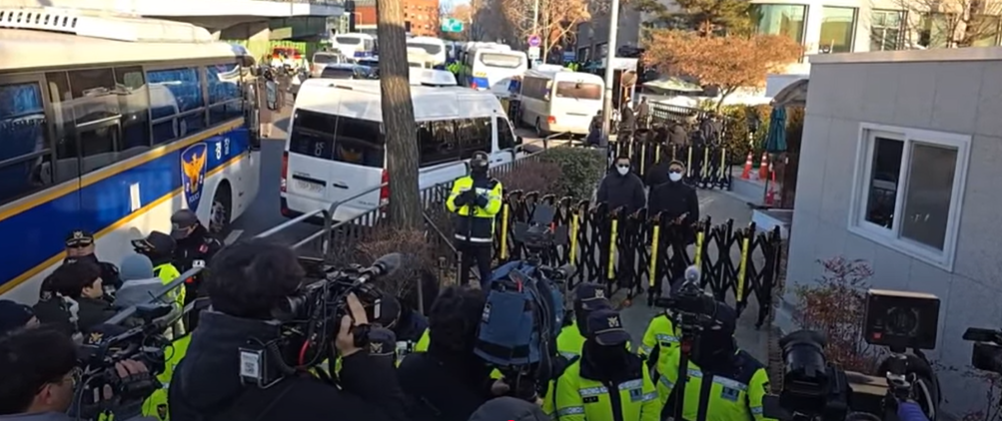South Korea is set to hold a snap presidential election within 60 days following the Constitutional Court's unanimous decision to remove President Yoon Suk Yeol from office. The impeachment stems from Yoon’s controversial declaration of martial law in December 2024, which was swiftly rejected by parliament.
Leading the race is Lee Jae-myung, head of the main opposition Democratic Party. A veteran politician and narrow runner-up in the 2022 election, Lee enjoys strong liberal support and double-digit leads in recent polls. Despite surviving a stabbing attack in 2024, Lee faces ongoing trials related to bribery and a major real estate scandal.
Han Dong-hoon, former leader of the ruling People Power Party (PPP), is a prominent conservative candidate. A former prosecutor, Han opposed Yoon’s martial law move, drawing criticism from Yoon loyalists. His moderate stance appeals to centrist voters.
Other potential conservative contenders include Kim Moon-soo, the labor minister polling well but not yet committed to running, and Oh Se-hoon, the four-term Seoul mayor known for advocating nuclear armament and launching his pro-growth “KOGA” initiative. Daegu mayor and five-term lawmaker Hong Joon-pyo, who lost the 2017 election, is also preparing a run.
From the opposition, Kim Dong-yeon, governor of Gyeonggi Province, is seen as another strong possibility. Emphasizing the importance of the U.S.-Korea alliance, Kim believes a Democratic candidate should lead the country forward.
As the nation prepares for a critical election, political uncertainty looms. With key figures from both major parties vying for power, South Korea faces a defining moment in its democratic history. The upcoming vote will not only determine leadership but also the direction of policy amid domestic and geopolitical tensions.



 Ohio Man Indicted for Alleged Threat Against Vice President JD Vance, Faces Additional Federal Charges
Ohio Man Indicted for Alleged Threat Against Vice President JD Vance, Faces Additional Federal Charges  Netanyahu to Meet Trump in Washington as Iran Nuclear Talks Intensify
Netanyahu to Meet Trump in Washington as Iran Nuclear Talks Intensify  US Pushes Ukraine-Russia Peace Talks Before Summer Amid Escalating Attacks
US Pushes Ukraine-Russia Peace Talks Before Summer Amid Escalating Attacks  Iran–U.S. Nuclear Talks in Oman Face Major Hurdles Amid Rising Regional Tensions
Iran–U.S. Nuclear Talks in Oman Face Major Hurdles Amid Rising Regional Tensions  India–U.S. Interim Trade Pact Cuts Auto Tariffs but Leaves Tesla Out
India–U.S. Interim Trade Pact Cuts Auto Tariffs but Leaves Tesla Out  Trump’s Inflation Claims Clash With Voters’ Cost-of-Living Reality
Trump’s Inflation Claims Clash With Voters’ Cost-of-Living Reality  TrumpRx.gov Highlights GLP-1 Drug Discounts but Offers Limited Savings for Most Americans
TrumpRx.gov Highlights GLP-1 Drug Discounts but Offers Limited Savings for Most Americans  Trump Signs Executive Order Threatening 25% Tariffs on Countries Trading With Iran
Trump Signs Executive Order Threatening 25% Tariffs on Countries Trading With Iran  Missouri Judge Dismisses Lawsuit Challenging Starbucks’ Diversity and Inclusion Policies
Missouri Judge Dismisses Lawsuit Challenging Starbucks’ Diversity and Inclusion Policies  U.S. to Begin Paying UN Dues as Financial Crisis Spurs Push for Reforms
U.S. to Begin Paying UN Dues as Financial Crisis Spurs Push for Reforms  Trump Lifts 25% Tariff on Indian Goods in Strategic U.S.–India Trade and Energy Deal
Trump Lifts 25% Tariff on Indian Goods in Strategic U.S.–India Trade and Energy Deal  New York Legalizes Medical Aid in Dying for Terminally Ill Patients
New York Legalizes Medical Aid in Dying for Terminally Ill Patients  China Warns US Arms Sales to Taiwan Could Disrupt Trump’s Planned Visit
China Warns US Arms Sales to Taiwan Could Disrupt Trump’s Planned Visit  Jack Lang Resigns as Head of Arab World Institute Amid Epstein Controversy
Jack Lang Resigns as Head of Arab World Institute Amid Epstein Controversy  Norway Opens Corruption Probe Into Former PM and Nobel Committee Chair Thorbjoern Jagland Over Epstein Links
Norway Opens Corruption Probe Into Former PM and Nobel Committee Chair Thorbjoern Jagland Over Epstein Links  Trump Endorses Japan’s Sanae Takaichi Ahead of Crucial Election Amid Market and China Tensions
Trump Endorses Japan’s Sanae Takaichi Ahead of Crucial Election Amid Market and China Tensions  Trump Signs “America First Arms Transfer Strategy” to Prioritize U.S. Weapons Sales
Trump Signs “America First Arms Transfer Strategy” to Prioritize U.S. Weapons Sales 































